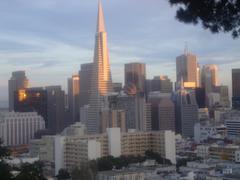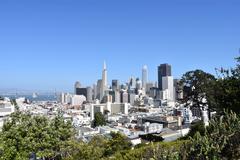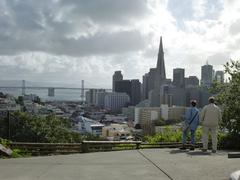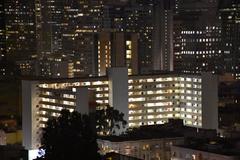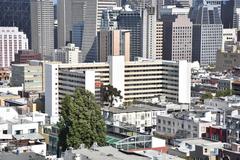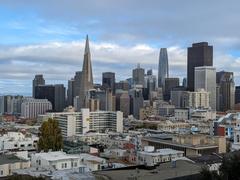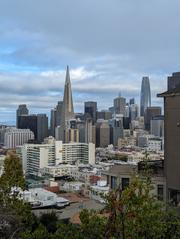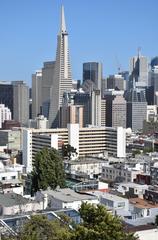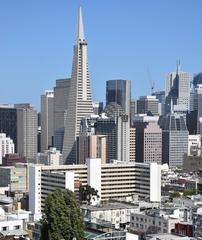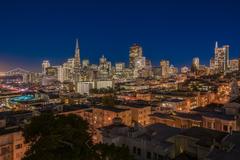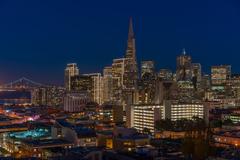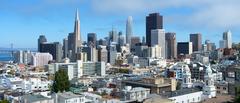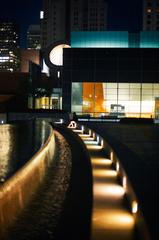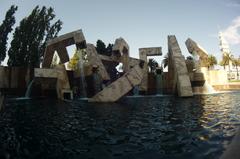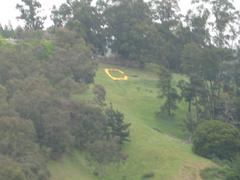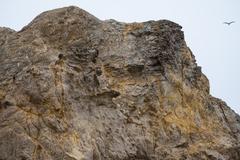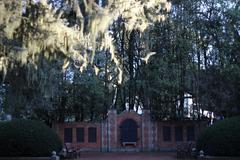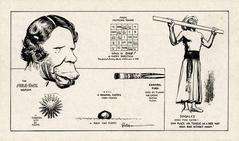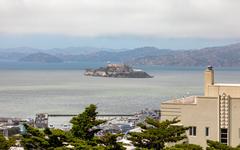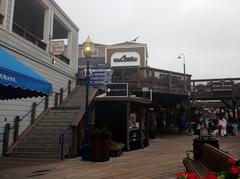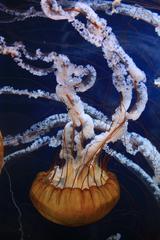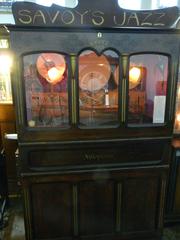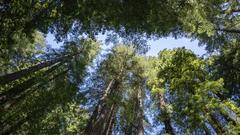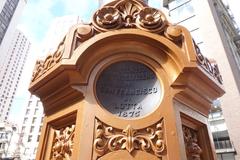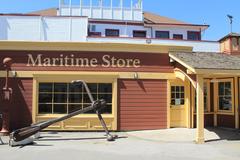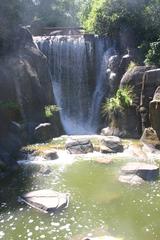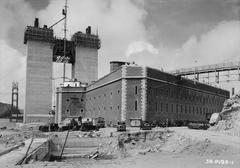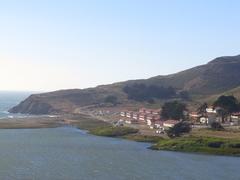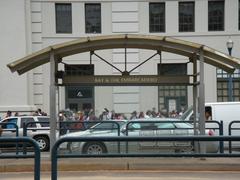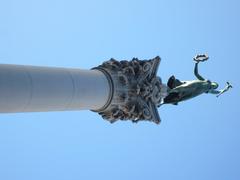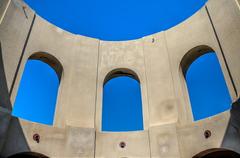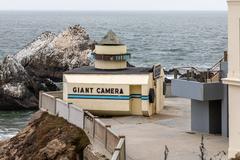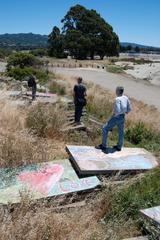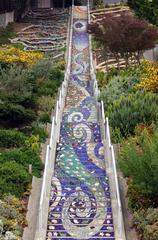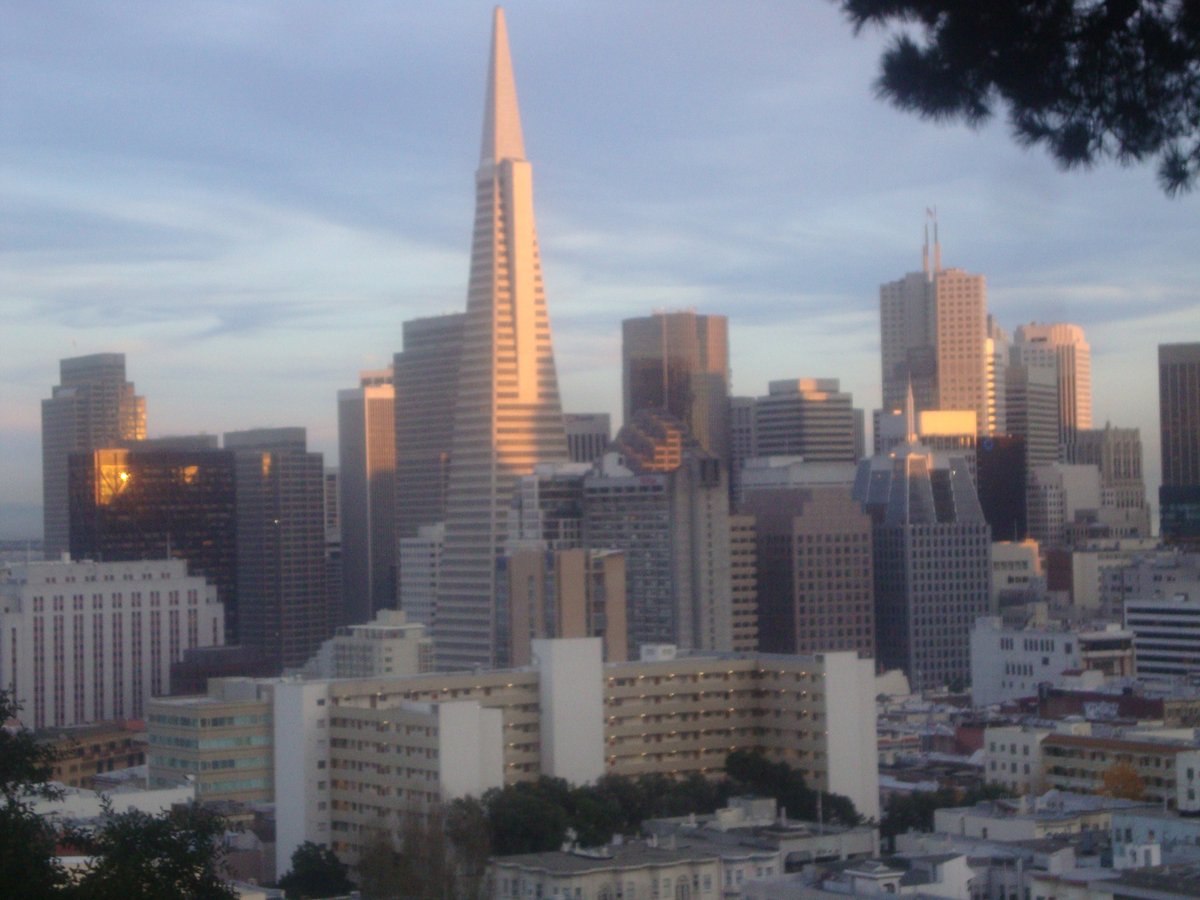
Comprehensive Guide to Visiting Ina Coolbrith Park, San Francisco, United States
Date: 19/07/2024
Introduction
Ina Coolbrith Park, nestled within San Francisco’s iconic Russian Hill neighborhood, stands as a tribute to California’s first poet laureate, Ina Donna Coolbrith. This park not only offers breathtaking panoramic views of the city but also harbors a rich literary and cultural history. Established in 1947, during a wave of urban development aimed at enhancing green spaces, the park quickly became a sanctuary for those seeking both natural beauty and introspective retreat. Coolbrith, a central figure in the San Francisco literary community, left an indelible mark on the city’s cultural landscape through her poetry and mentorship of young writers. Her influence persists today, with the park serving as a living testament to her legacy, featuring plaques and inscriptions of her poetry that guide visitors through both a physical and literary journey (San Francisco Parks Alliance).
Table of Contents
- Introduction
- History of Ina Coolbrith Park
- Practical Information for Visitors
- Cultural Impact
- Modern-Day Relevance
- FAQ
- Conclusion
History of Ina Coolbrith Park
Early Beginnings and Naming
Ina Coolbrith Park, located in the Russian Hill neighborhood of San Francisco, is named after Ina Donna Coolbrith, California’s first poet laureate and a prominent literary figure in the late 19th and early 20th centuries. Coolbrith, born in 1841, was a key member of the San Francisco literary community, often associated with the likes of Mark Twain and Bret Harte. Her contributions to literature and her role as a librarian and mentor to young writers earned her a lasting legacy in California’s cultural history (San Francisco Parks Alliance).
Development of the Park
The park itself was established in 1947, during a period when San Francisco was undergoing significant urban development and beautification efforts. The city recognized the need for green spaces amidst the growing urban landscape, and Ina Coolbrith Park was part of this initiative. The park was designed to offer panoramic views of the city, including landmarks such as the Bay Bridge, Coit Tower, and the Transamerica Pyramid. Its location on a steep hillside made it a unique addition to San Francisco’s array of parks (San Francisco Recreation and Parks).
Literary Significance
Ina Coolbrith’s influence on the park’s identity cannot be overstated. As a poet laureate, her work often reflected the natural beauty and cultural vibrancy of California. The park serves as a tribute to her literary achievements and her role in shaping the cultural landscape of San Francisco. Coolbrith’s poetry, which celebrated the natural world and the human spirit, is echoed in the serene and contemplative atmosphere of the park. Visitors can find plaques and inscriptions of her poetry throughout the park, offering a literary journey alongside the physical one (Poetry Foundation).
Historical Events and Changes
Over the decades, Ina Coolbrith Park has witnessed numerous historical events and changes. During the 1960s and 1970s, the park became a popular spot for counterculture gatherings, reflecting the broader social and cultural movements of the time. The park’s location in Russian Hill, a neighborhood known for its bohemian and artistic communities, made it a natural gathering place for poets, artists, and musicians.
In the late 20th and early 21st centuries, the park underwent several renovations to preserve its natural beauty and historical significance. These efforts included landscaping improvements, the installation of new pathways, and the addition of benches and viewing platforms. The goal was to maintain the park’s historical character while enhancing its accessibility and appeal to modern visitors (San Francisco Chronicle).
Practical Information for Visitors
Visiting Hours and Accessibility
Ina Coolbrith Park is open daily from sunrise to sunset. The park is free to enter, making it an accessible option for all visitors. Due to its steep terrain, some areas may be challenging for those with mobility issues, but there are benches and resting spots throughout the park.
How to Get There
The park is located at 1700 Taylor St, San Francisco, CA 94133. Public transportation options include the Muni bus lines 45 and 19, which have stops nearby. Limited street parking is available, but it is advisable to use public transportation or ride-sharing services due to the area’s hilly streets.
Nearby Attractions
While visiting Ina Coolbrith Park, consider exploring nearby attractions such as Coit Tower, Lombard Street, and the North Beach neighborhood, known for its Italian heritage and vibrant dining scene.
Cultural Impact
Ina Coolbrith Park holds a special place in the cultural fabric of San Francisco. It is not just a green space but a living monument to the city’s literary heritage. The park’s dedication to Coolbrith highlights the importance of literature and the arts in the city’s history. It serves as a reminder of the vibrant literary community that once thrived in San Francisco and continues to inspire new generations of writers and artists.
The park’s cultural impact extends beyond its literary associations. It is a symbol of the city’s commitment to preserving its historical and cultural landmarks. The park’s maintenance and preservation efforts reflect a broader trend in San Francisco to honor its past while adapting to the needs of the present and future (San Francisco Heritage).
Modern-Day Relevance
Today, Ina Coolbrith Park remains a beloved destination for both locals and tourists. Its historical significance, combined with its stunning views and tranquil atmosphere, makes it a unique and cherished part of San Francisco. The park continues to host literary events, poetry readings, and cultural gatherings, keeping Coolbrith’s legacy alive and relevant in the modern era.
The park’s ongoing relevance is also evident in its role as a community space. It provides a peaceful retreat from the bustling city, offering a place for reflection, inspiration, and connection with nature. The park’s historical markers and literary references serve as educational tools, enriching visitors’ understanding of San Francisco’s cultural history (San Francisco Public Library).
FAQ
Q: What are the visiting hours for Ina Coolbrith Park?
A: The park is open daily from sunrise to sunset.
Q: Is there an entrance fee for Ina Coolbrith Park?
A: No, the park is free to enter.
Q: How can I get to Ina Coolbrith Park?
A: The park is located at 1700 Taylor St, San Francisco, CA 94133. You can take Muni bus lines 45 and 19, or use ride-sharing services.
Q: Are there any special events held at the park?
A: Yes, the park hosts literary events, poetry readings, and cultural gatherings. Check local listings for upcoming events.
Q: Is Ina Coolbrith Park accessible for visitors with mobility issues?
A: Due to the park’s steep terrain, some areas may be challenging. However, there are benches and resting spots throughout the park.
Conclusion
Ina Coolbrith Park is more than a historical landmark; it is a vibrant embodiment of San Francisco’s rich cultural tapestry. The park’s panoramic vistas and serene atmosphere offer a peaceful retreat from the bustling city life, while its literary heritage and historical markers provide a unique educational experience. Over the years, the park has evolved, reflecting broader social and cultural movements, yet it has never lost its essence as a sanctuary for poets, artists, and nature lovers. Preservation efforts continue to maintain its historical significance and natural beauty, ensuring it remains a cherished space for future generations. A visit to Ina Coolbrith Park is not just a stroll through a beautiful garden but a walk through the annals of San Francisco’s cultural history (San Francisco Heritage, San Francisco Public Library).
References
- San Francisco Parks Alliance. Retrieved from San Francisco Parks Alliance
- San Francisco Recreation and Parks. Retrieved from San Francisco Recreation and Parks
- Poetry Foundation. Retrieved from Poetry Foundation
- San Francisco Chronicle. Retrieved from San Francisco Chronicle
- San Francisco Heritage. Retrieved from San Francisco Heritage
- San Francisco Public Library. Retrieved from San Francisco Public Library
